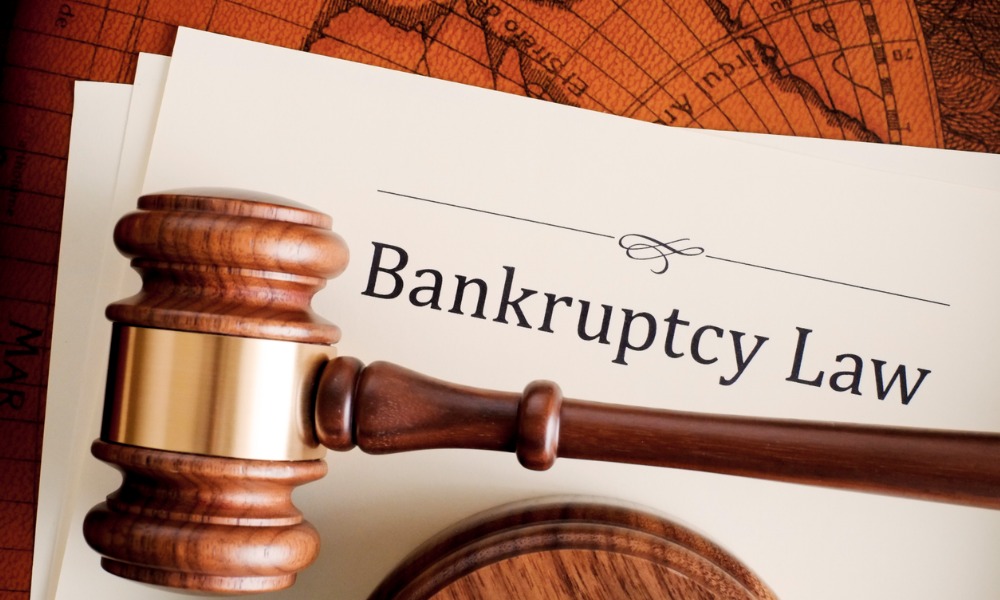The BCSC calls for changes to bankruptcy laws after a Supreme Court decision on financial sanctions

The BC Securities Commission (BCSC) is advocating for changes to the federal Bankruptcy and Insolvency Act following a Supreme Court of Canada decision.
The court ruled that some financial sanctions can be eliminated through bankruptcy, which could undermine the efforts of securities regulators.
In a 5-2 decision, the Supreme Court declared that administrative penalties, imposed by the BCSC and other Canadian securities regulators to prevent future misconduct, can be removed from a person’s debt upon being discharged from bankruptcy.
This decision poses significant challenges for securities regulators in collecting financial penalties from violators.
“This case demonstrates one of the many challenges securities regulators face in collecting financial penalties from lawbreakers,” said BCSC chair and CEO Brenda Leong.
“The fact that administrative penalties can be extinguished through bankruptcy seriously undermines securities regulators’ duty to protect investors and highlights a significant flaw in federal bankruptcy law that needs to be fixed.”
The ruling emerged from litigation between the BCSC and a BC couple, Thalbinder Singh Poonian and Shailu Poonian. A BCSC panel found that the couple operated a pump-and-dump scheme involving an Ontario company with shares traded on the TSX Venture Exchange.
The panel concluded that the Poonians inflated the company’s share price through trading among themselves, relatives, friends, and acquaintances, and then illegally earned approximately $7m by selling shares to unsuspecting buyers, many of whom lived paycheck to paycheck.
Most victims were unaware of the misconduct until contacted by the BCSC.
The BCSC panel imposed two types of financial sanctions against the Poonians:
- Administrative penalties of $13.5m to deter future misconduct by the Poonians and others.
- Disgorgement of $5.6m, representing the amount the couple obtained from their illegal activities. Funds collected for disgorgement orders can be returned to the victims.
The Poonians did not attempt to pay these sanctions and filed for bankruptcy after the BCSC imposed them. They requested the BC Supreme Court to extinguish their debts, including those owed to the BCSC, but the court denied this request in 2020.
The BCSC also applied to the court for an order that its financial sanctions against the Poonians persist, even if all their other debts are extinguished through bankruptcy. The Bankruptcy and Insolvency Act allows some debts to survive bankruptcy, including:
- Debts arising from a fine, penalty, or restitution order imposed by a court.
- Debts arising from obtaining property or services by false pretenses or fraudulent misrepresentation.
- The BCSC argued that its sanctions met these criteria. The Supreme Court of Canada agreed with the
BCSC that “the Poonians’ scheme to mislead and exploit investors amounted to fraudulent misrepresentation.” However, the court did not agree that the sanctions qualified as court-imposed orders.
The court's five-member majority stated that the disgorgement orders were directly linked to the Poonians’ fraudulent conduct, so those debts to the BCSC survive bankruptcy.
However, the administrative penalties arose most directly from the BCSC’s decision to sanction the couple and only indirectly from the Poonians’ unlawful conduct, meaning those penalties are extinguished if the couple exit bankruptcy.
Two justices dissented, arguing that both administrative penalties and disgorgement should persist to “ensure that dishonest debtors do not benefit from their dishonesty.”
“We are pleased that the Poonians, as a result of this decision, will forever owe $5.6m, which represents the money they obtained from their pump-and-dump scheme,” Leong said.
“However, this has always been about more than this one case, and we are disappointed that people who cheat or swindle investors can avoid paying administrative penalties through an exit from bankruptcy.”
Since 2001, more than 40 individuals and companies, owing a total of about $80m to the BCSC, have gone through bankruptcy and had their BCSC debts extinguished.
The Supreme Court of Canada, in its written opinion, noted that Parliament could have drafted the Bankruptcy and Insolvency Act to explicitly exempt financial sanctions of regulatory bodies or administrative tribunals from bankruptcy discharge. But the Act does not state that.
“An obvious solution is to revise the law to deal with this ‘escape hatch,’” Leong said.



